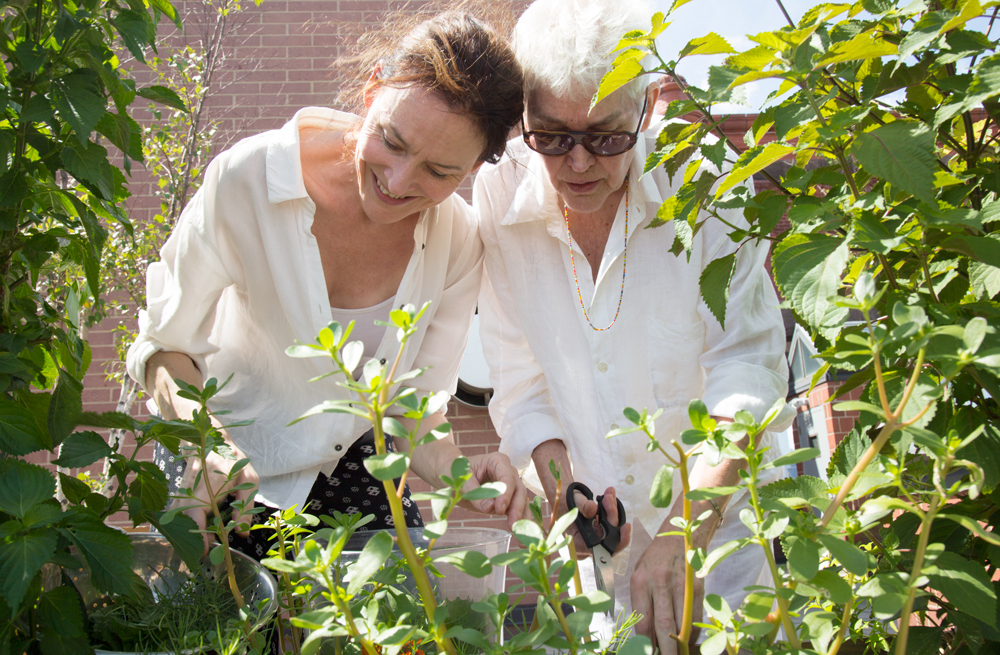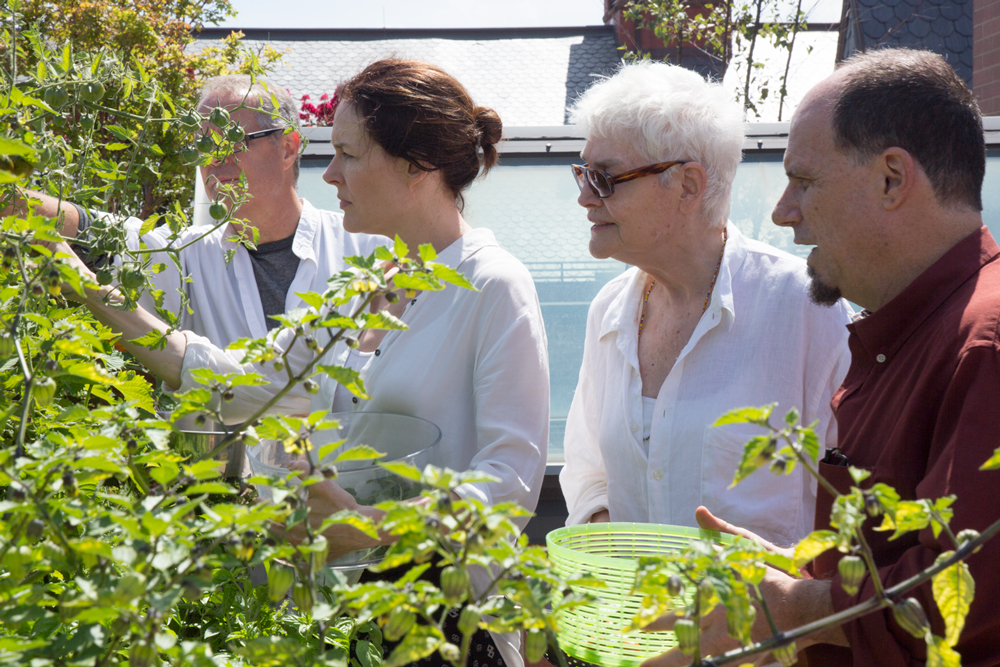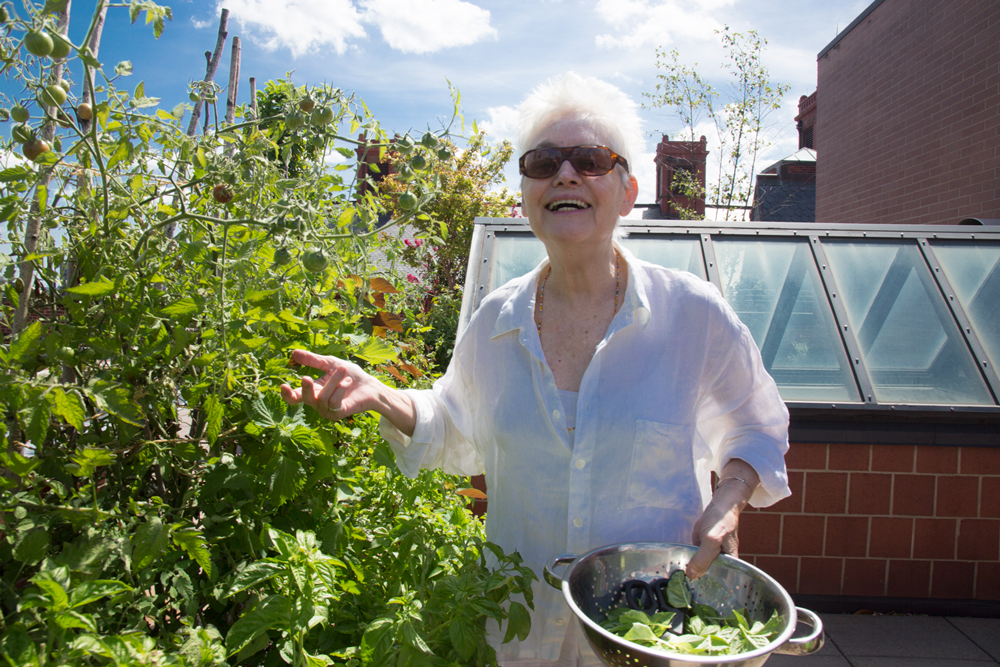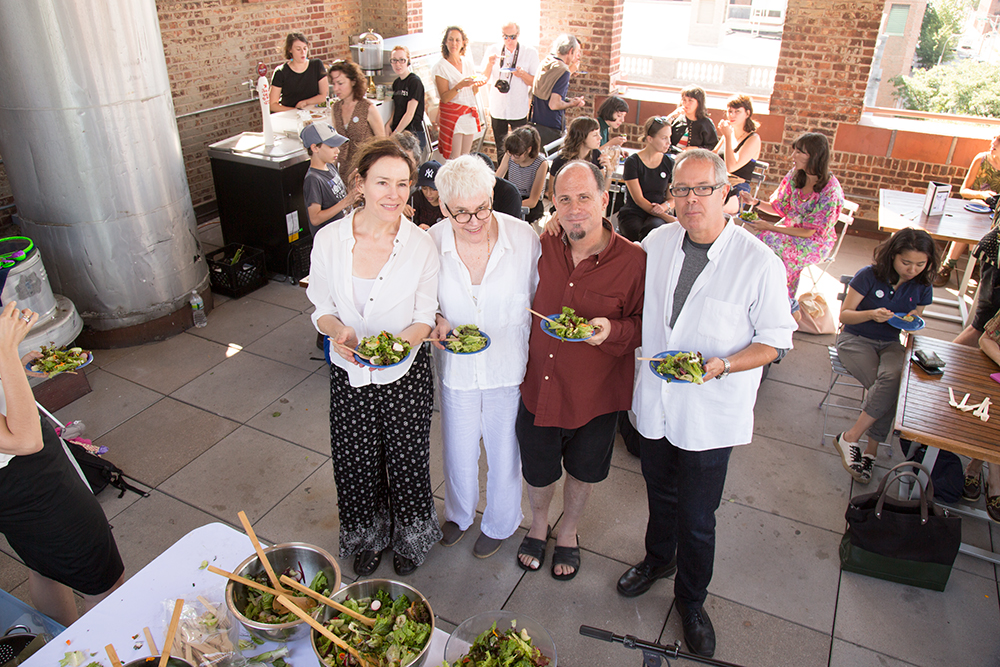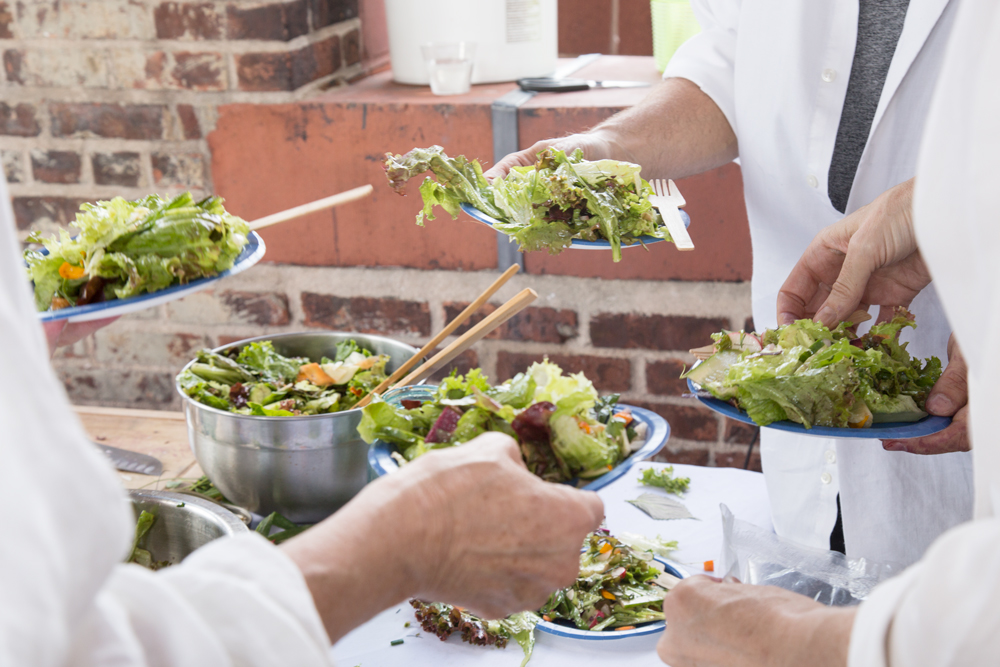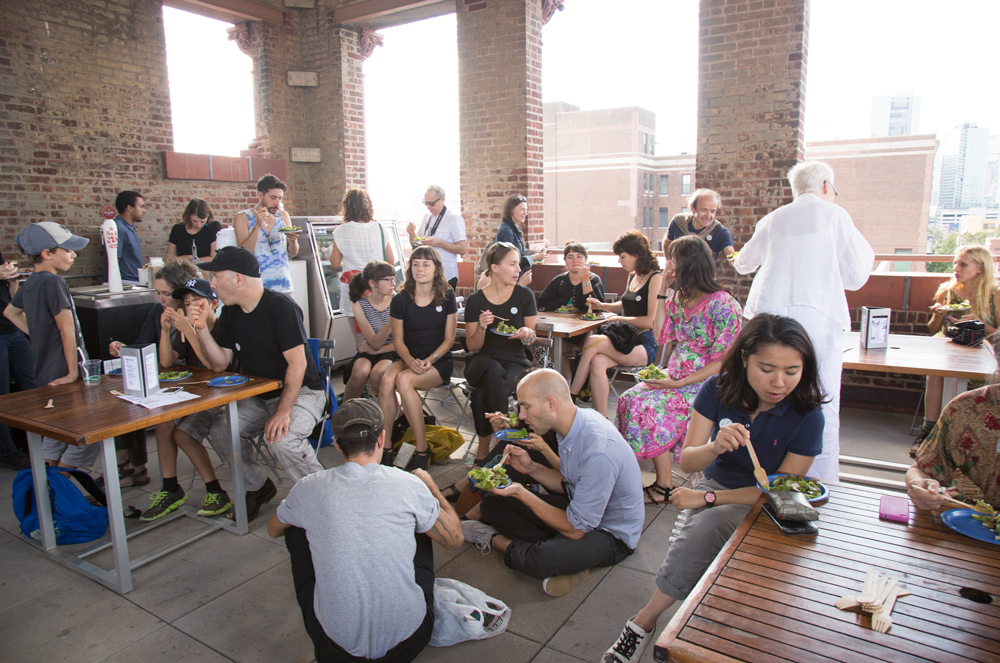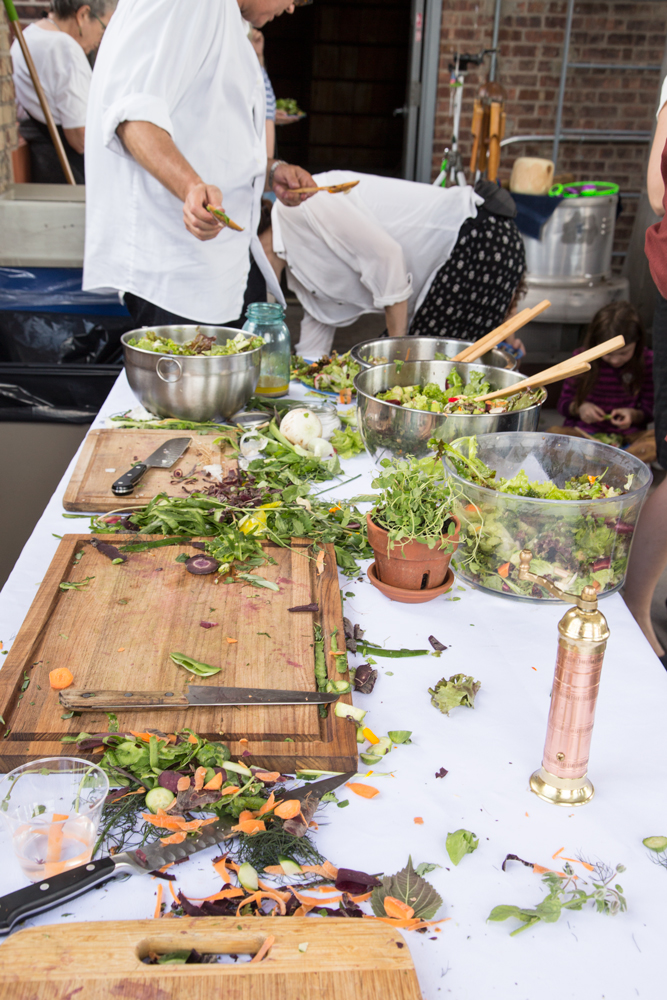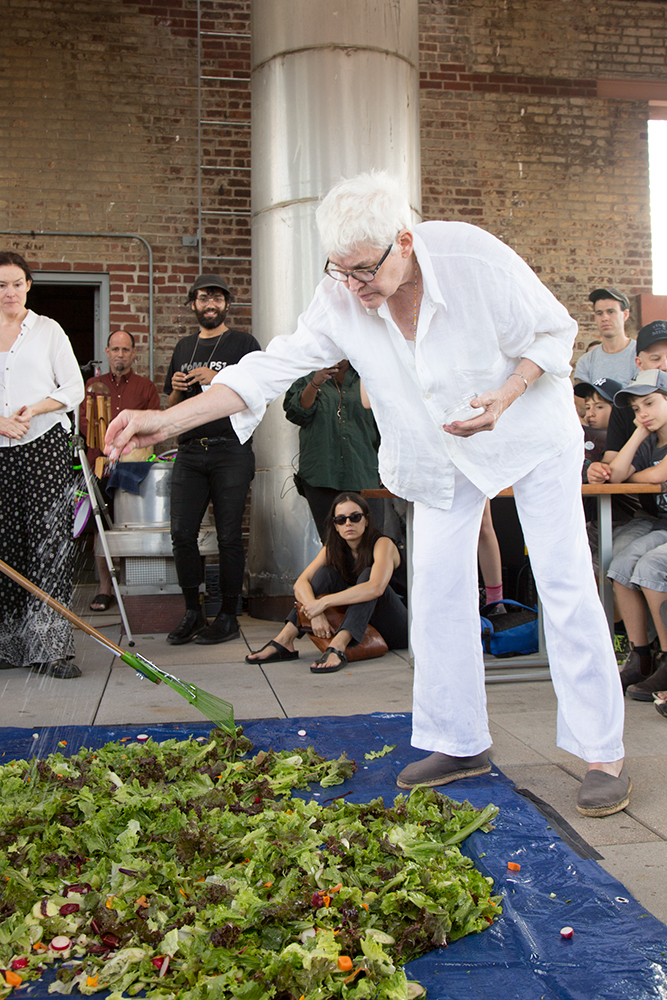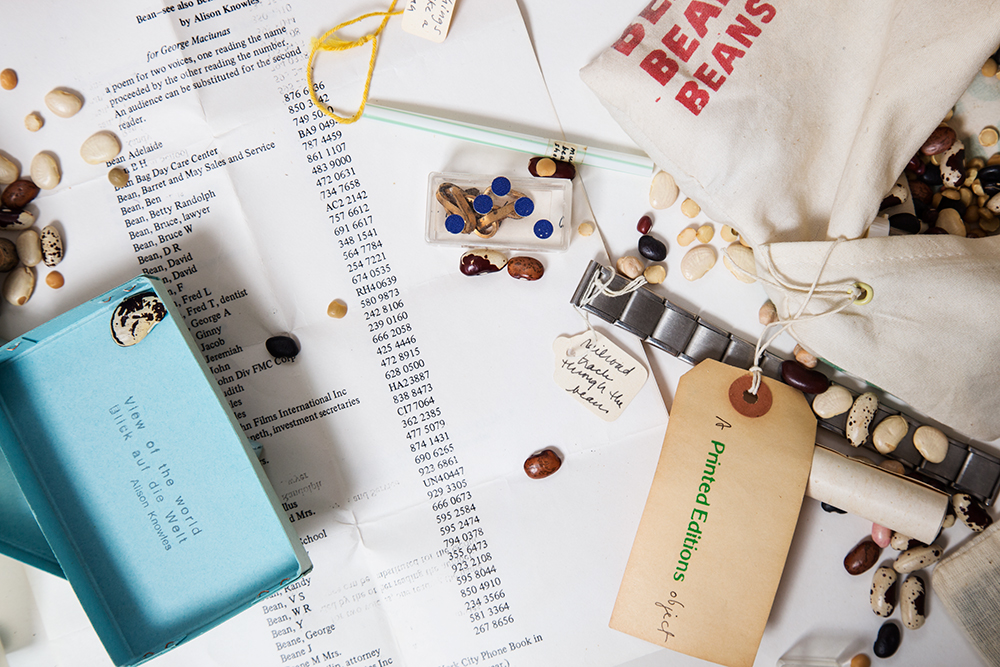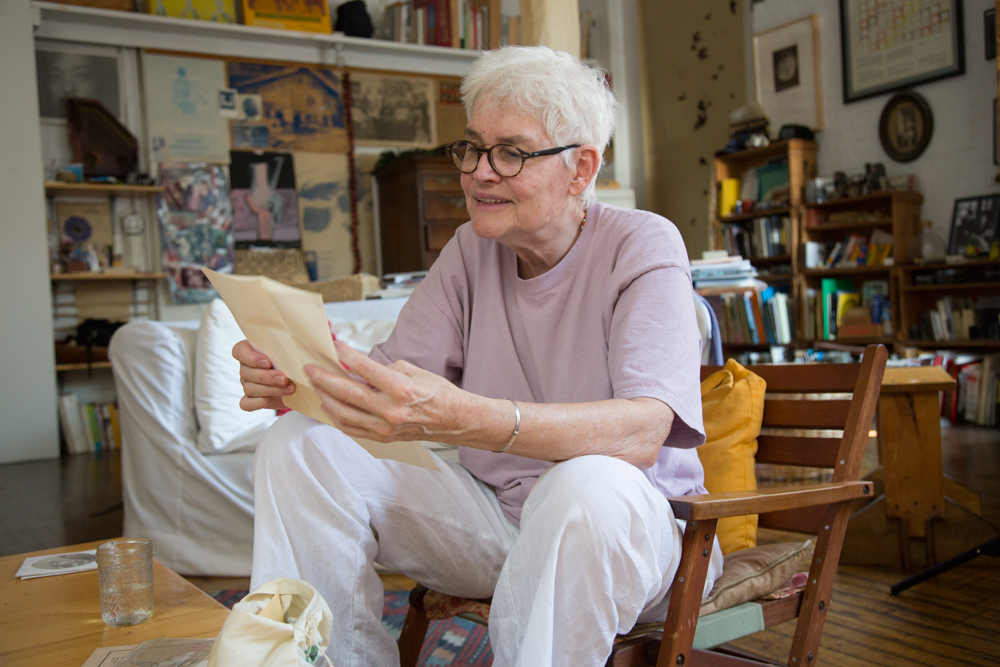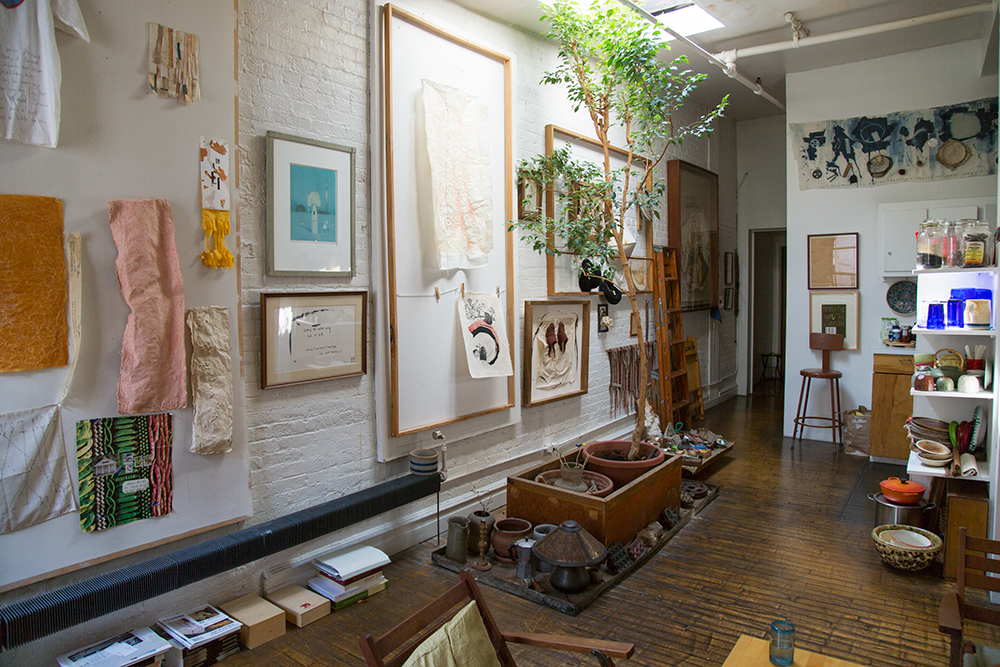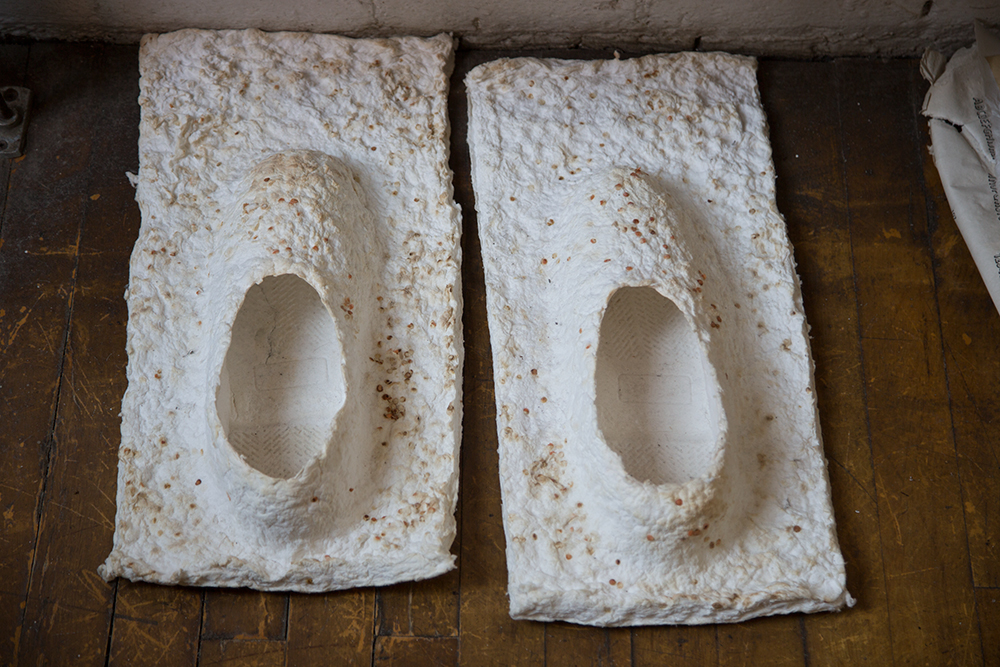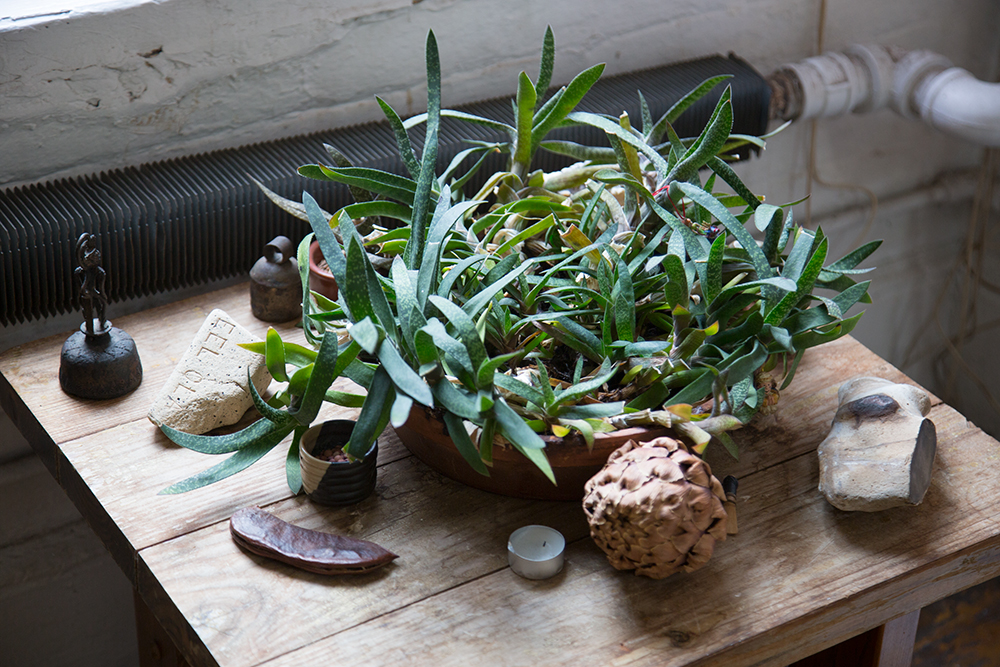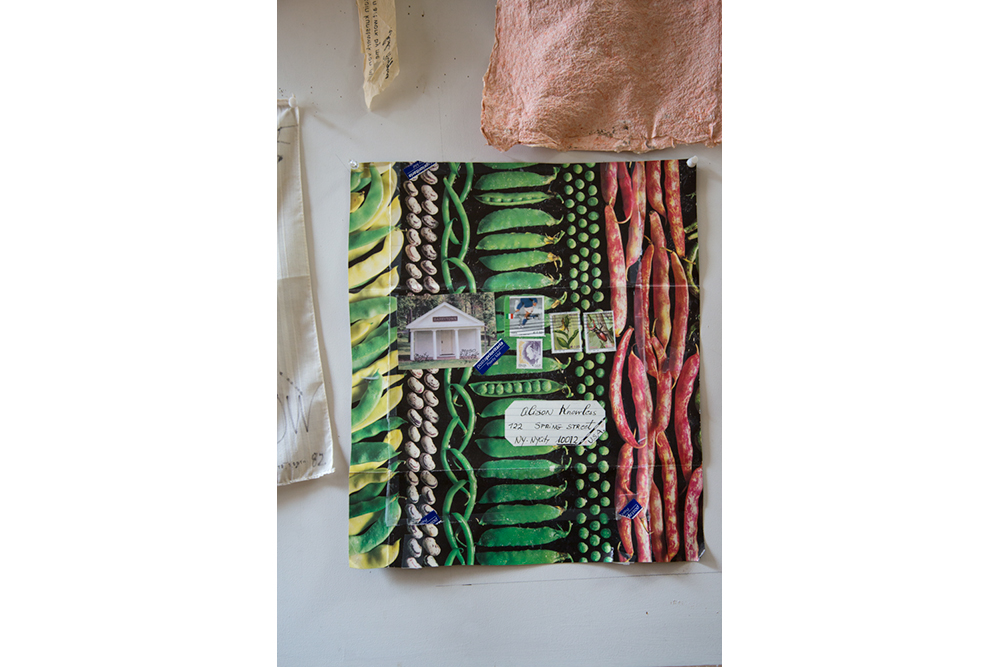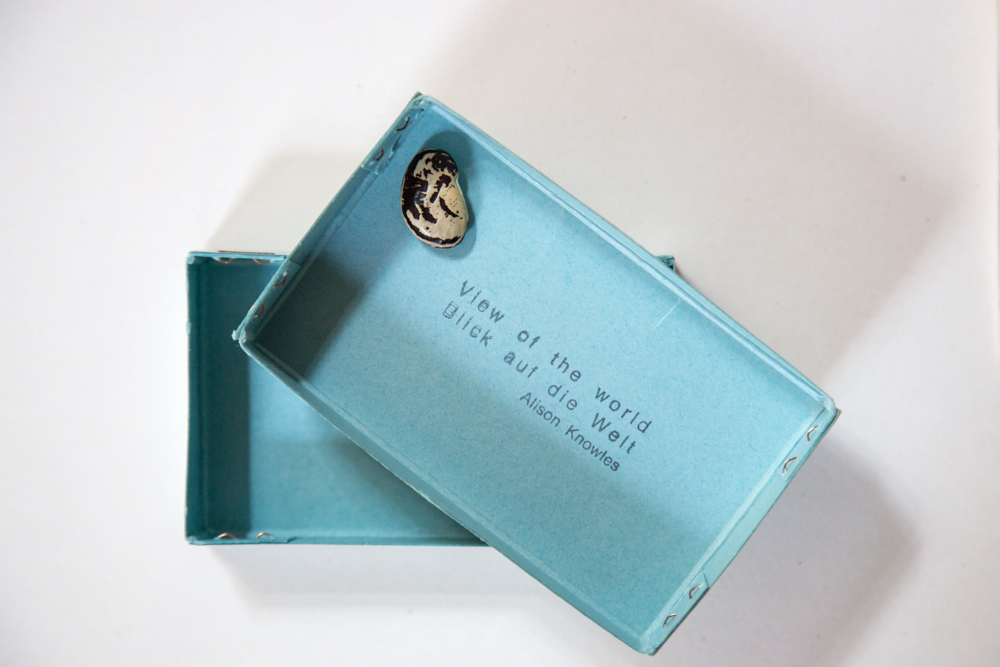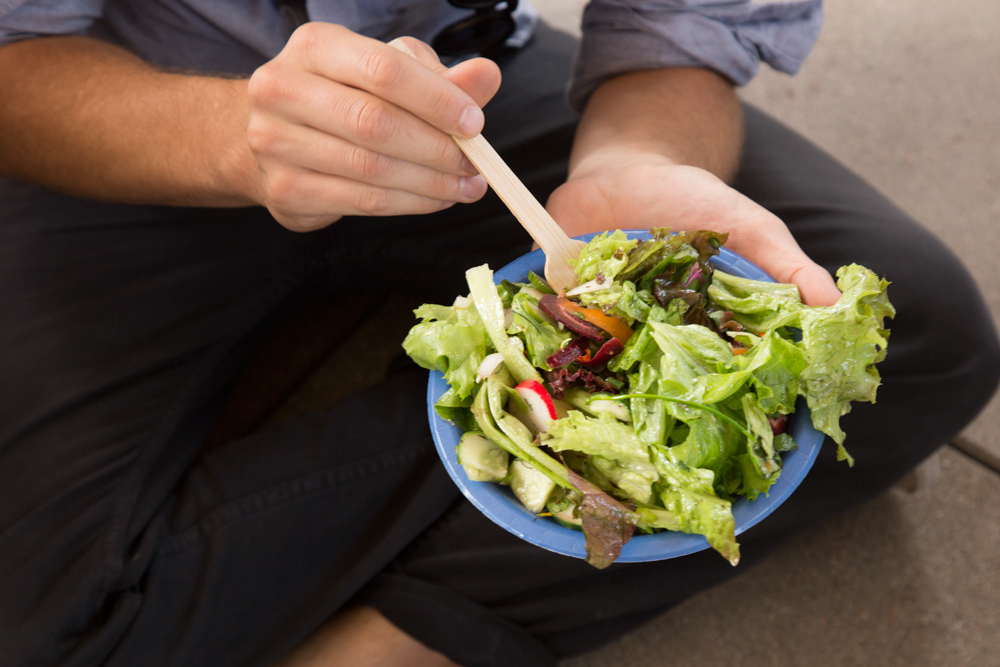POSTED UNDER
- Fluxus,
- Performance,
- SUMMER
INGREDIENTS
- BASIL,
- bronze fennel,
- CARROTS,
- cucumber,
- lettuce,
- parsley,
- radish,
- salad burnet,
- saltwort,
- thai basil
NOTES
This salad can be made for two, or for two thousand; it is more of an event score, than a recipe. We used almost all the herbs available in the MoMA PS1 Salad Garden. I have been loving these willy-nilly combinations, each bite is a little different than the last. You can make these herbaceous salads using any and all fresh herbs (I would avoid rosemary, summer savory and lovage). Choose your own adventure.
RECIPE
DIFFICULTY
EASY
PREP TIME
60 MINS
Salad
-
5headsred leaf lettuce
-
2cupsbronze fennel fronds
-
3cupsshiso leaves
-
3cupssalad burnet, stems removed
-
3cupsradishes
-
1cuppea shoots
-
1cuppurslane
-
1cupagretti,stems removed
-
1cupbasil leaves
-
16'x12'Plastic tarp
-
1handfulminutina
-
3green zebra tomatoes
-
3 - 4marigold flowers, petals only
-
3sets of salad tongs
-
12persian cucumbers
-
12heirloom carrots
-
1garden rake
-
3large bowls
-
3cutting boards
-
3knives
-
2microphones
-
1P.A. System
Dressing
-
3tbsDijon mustard
-
1/4cupmaple syrup
-
1/2cupred wine or cider vinegar
-
1 1/2cupsolive oil
-
sea salt
-
cracked black pepper
POSTED UNDER
- Fluxus,
- Performance,
- SUMMER
INGREDIENTS
- BASIL,
- bronze fennel,
- CARROTS,
- cucumber,
- lettuce,
- parsley,
- radish,
- salad burnet,
- saltwort,
- thai basil
The MoMA PS1 Salad Garden project would not have been complete without the inclusion of Alison Knowles, the original Salad Artist. Alison is a Fluxus artist, having made her mark on the world with her textual event scores — simple propositions that suggest you, Make A Salad, Make A Soup, or eat an Identical Lunch, in the name of art. These imperatives can manifest in your imagination alone, or they can be enacted, anytime, anyplace, by anyone. Alison has built a career around her work with salad, beans and shoes as her media, and I can’t think of anything more inspiring. I draw from her work, and use it as a touchstone — an example of the importance of participation, the accessibility of conceptual art, and the rituals of the everyday action.
Last June, I tracked Alison down and I proposed that she contribute to the blog by enacting her seminal 1962 event score, Make A Salad, in the MoMA PS1 Salad Garden. This score was first performed in 1962 at the ICA in London, and Alison has performed it 3 times since, on one occasion to an audience of a couple thousand at least. When I extended the invitation to perform this on a far more intimate scale, Alison declined, due to her busy travel schedule, but invited me to enact the score myself. “But Alison,” I said, “I have been enacting the score, nearly on a daily basis, inviting friends and strangers alike to partake in the ceremony of salad. But, the project won’t be complete unless you yourself, make an appearance.” In response, Alison invited me to her loft (a place on Spring street that is frozen in time, where she has lived for 50 years). There, she so generously presented me with each work of art that she has thoughtfully pinned to her wall — personal notes from John Cage (her close friend and collaborator), her collection of beans and printed editions (when Alison is not making salad, she is most often working with beans). We talked about plants, books, salad and our shared love of mushroom hunting. After an exhaustive show and tell, she mulled about the room, asking, “What else can I show you…”That same afternoon, we set a date to perform Make A Salad at MoMA PS1, and the event took place on August 18th.
Alison chose her performers, each accomplished artists in their own right: David Teeple, Jessica Higgins, and Mark Bloch who provided an improvisational percussive element to the piece. Each time that this score is performed, the curator is asked to make crucial decisions about what materials to use, where and how the performance will play out, and how many people will attend. After all, the original 1962 score simply says, “Make A Salad.” Nothing more, nothing less. When Alison and her team arrived, we toured the garden, tasting everything and harvesting our materials for the day (making sure to spend extra time with my rainbow colored Reverend Taylor Butterbeans). Whereas the ingredients for these Fluxus salads have previously come from the grocery store, our vegetables would be grown on-site, an element that Alison marveled at as she called out the ingredients while chopping for her audience, “Thai Pink Egg Tomato, Bronze Fennel, Saltwort, Salad Burnet…” Unsuspecting museum visitors and a select group of fellow artists and friends were invited to watch, and eventually, to eat. Alison insists that waste not be a result of the project, so the audience was urged, maybe even peer-pressured, by the Grand Dame herself, into going back for seconds. It was one of the few performances I have experienced in my life, that undoubtedly, left its audience duly sated.
My interview with Alison is forthcoming in Lucky Peach magazine. Stay tuned!
